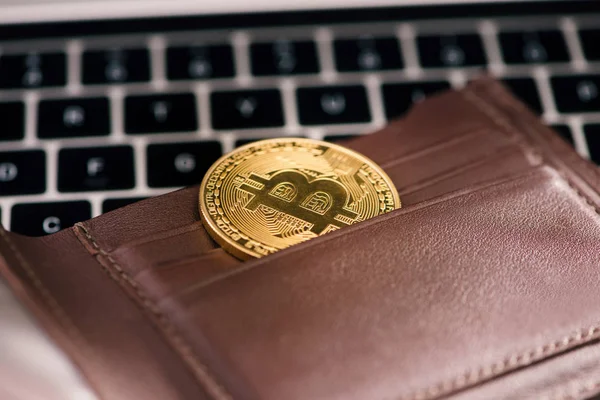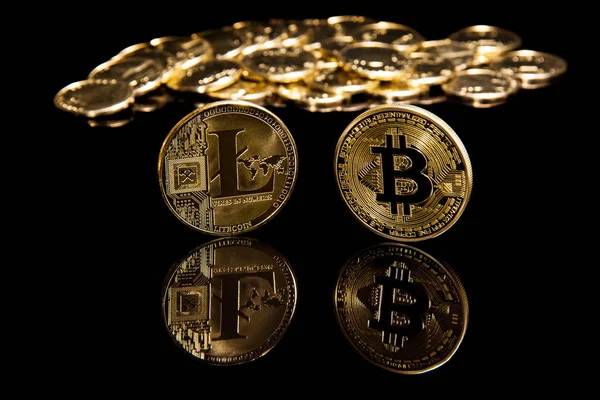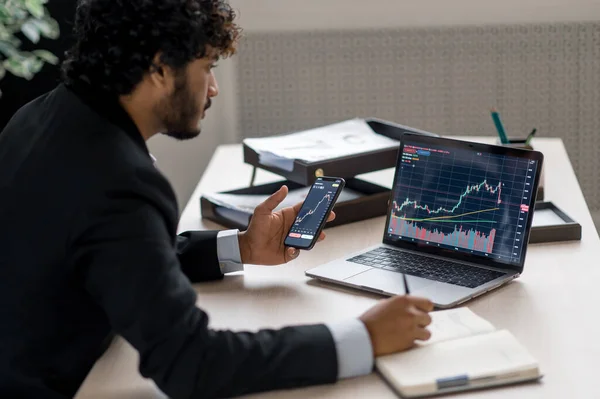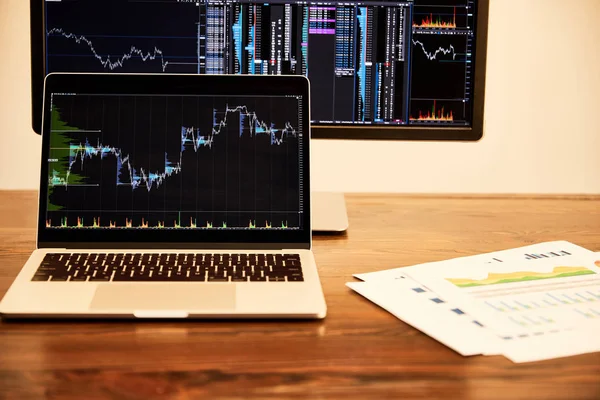
A beginner's guide to cryptocurrency: understanding the basics
Cryptocurrency has been making headlines for the past few years and has taken the world by storm. It's a new kind of digital asset that has the potential to revolutionize the way we make transactions and manage our money. If you're new to the world of cryptocurrency, it can all seem a bit overwhelming. With so much information out there, it can be hard to know where to start and what's important to understand. That's why we've put together this beginner's guide to cryptocurrency: to help you understand the basics and get started on your journey.
Cryptocurrency may sound like something out of a sci-fi novel, but it's actually a real and rapidly growing trend. It's important to have a basic understanding of cryptocurrency, not just because it's the future of money, but also because it's a way to participate in a global movement towards financial freedom. With cryptocurrency, you have the power to take control of your financial future and make transactions without the need for intermediaries like banks or credit card companies.:
So, whether you're a complete newbie or someone who's heard of cryptocurrency but is still a bit confused, this guide is for you. We'll take you through the basics of what cryptocurrency is, how it works, and what you need to know to get started. And don't worry, we won't be using any technical jargon that you'll need a PhD to understand. Instead, we'll explain things in plain English and throw in a little bit of humor to make it all more manageable. By the end of this guide, you'll have a solid foundation in cryptocurrency and be ready to dive in.
What is Cryptocurrency?

What is Cryptocurrency?" you ask. Well, buckle up buttercup, because we're about to take a wild ride into the world of digital assets. Simply put, cryptocurrency is a form of digital currency that uses cryptography (hence the name) to secure transactions and control the creation of new units. But wait, there's more! Unlike traditional currency, cryptocurrency operates independently of a central bank and operates on a decentralized network using blockchain technology.
Cryptocurrency has been around for over a decade now and has come a long way from its humble beginnings. It all started with the creation of Bitcoin in 2009, which aimed to provide a secure, peer-to-peer electronic cash system without the need for intermediaries. Since then, thousands of other cryptocurrencies have been created, each with its own unique features and use cases.
So, why has cryptocurrency taken the world by storm? For starters, it offers a level of anonymity and security that traditional currency just can't match. Transactions on a blockchain network are recorded and verified by a network of computers, making it nearly impossible for any one entity to manipulate or corrupt the system. Additionally, because it operates independently of a central authority, it offers more freedom and control to the user.
Blockchain Technology

Blockchain technology is the backbone of cryptocurrencies and is one of the key reasons why cryptocurrencies have been gaining in popularity in recent years. So, what exactly is blockchain technology and why is it so important for cryptocurrencies?
At its core, blockchain technology is a digital ledger that records transactions in a secure, decentralized manner. Each block in the chain contains a number of transactions and is linked to the previous block, hence the name "blockchain". This creates a chain of blocks that cannot be altered, making the technology highly secure and transparent.
The decentralization aspect of blockchain technology is what sets it apart from traditional ledger systems. With blockchain, there is no need for a central authority, such as a bank, to verify transactions. Instead, a network of users work together to validate transactions, making it a trustless system that is less susceptible to fraud or corruption.
One of the main benefits of blockchain technology is its ability to provide a secure, tamper-proof record of transactions. This is especially important in the world of cryptocurrencies, where the value of a currency is tied directly to its underlying technology. By using blockchain technology, cryptocurrencies can provide a level of security and transparency that traditional financial systems cannot match.
So, as you can see, blockchain technology plays a crucial role in the world of cryptocurrencies and is a key reason why cryptocurrencies have become so popular in recent years. Whether you're just starting out in the world of cryptocurrency or you're an experienced investor, it's important to have a solid understanding of blockchain technology and how it works.
Digital Wallets

Digital wallets are an essential component of the cryptocurrency world, just like a physical wallet is for physical currency. But unlike physical wallets, digital wallets are not tangible, they are software programs that store your digital currency and private keys.
A private key is a secret code that allows you to access and control your cryptocurrency, it's like a password but much more secure. And just like a password, if you lose your private key, you'll lose access to your digital currency. That's why it's important to store your private key in a safe and secure digital wallet.
There are two types of digital wallets: hot wallets and cold wallets. Hot wallets are connected to the internet and are more convenient for day-to-day transactions, but they're also more susceptible to hacking and cyber attacks. Cold wallets, on the other hand, are not connected to the internet, making them much more secure, but they're also less convenient for day-to-day transactions.
When choosing a digital wallet, it's important to consider your specific needs and choose a wallet that provides the right balance of security and convenience. There are many different digital wallets to choose from, each with its own features and benefits. It's worth taking the time to research and compare a few different options to find the right wallet for you
Cryptocurrency Exchanges

Cryptocurrency exchanges are the platforms where you can buy, sell, or trade your digital assets. They are similar to stock exchanges, but instead of trading traditional stocks, you trade cryptocurrencies. Some of the most popular exchanges include Coinbase, Binance, and Kraken. Before you get started, it's important to do your research and find an exchange that is secure, trustworthy, and offers a good user experience.
When choosing an exchange, there are several factors to consider, such as fees, security, payment methods, and the selection of cryptocurrencies available for trading. You should also make sure that the exchange has a good reputation and a history of safeguarding user data and funds.
Once you've selected an exchange, you'll need to create an account, complete verification, and link a payment method, such as a bank account or credit card. After that, you'll be able to buy, sell, and trade cryptocurrencies. Some exchanges offer advanced trading features, such as margin trading, which allows you to trade with borrowed funds, and stop-loss orders, which can help you manage your risk.
It's important to remember that cryptocurrency exchanges are not without risk. Prices can be volatile, and there have been instances of hacks and scams in the past. That's why it's crucial to keep your digital assets in a secure digital wallet and not to leave your funds on an exchange for an extended period of time. By being informed and taking appropriate precautions, you can minimize your risk and enjoy the exciting world of cryptocurrency trading.
Buying and Selling Cryptocurrency

"Buying and Selling Cryptocurrency" is one of the crucial aspects of the cryptocurrency world. When you buy cryptocurrency, you are essentially exchanging traditional currency for a digital or virtual currency. The process of buying and selling cryptocurrency is relatively simple, but it is essential to do it the right way. Here's what you need to know:
First, you need to set up a digital wallet. This will be your virtual home for your cryptocurrency, and it's where you'll store, manage, and trade your coins. There are many different types of digital wallets, ranging from hardware wallets to software wallets, and it's important to choose the one that's right for you.
Once you have a digital wallet, you can then head to a cryptocurrency exchange. A cryptocurrency exchange is an online platform where you can buy, sell, and trade various cryptocurrencies. Some of the most popular exchanges include Binance, Coinbase, and Kraken. When you choose an exchange, make sure it's reputable, secure, and has a good track record.
Next, you'll need to fund your account. You can do this by transferring traditional currency (e.g. USD, EUR, etc.) from your bank account or by using a credit or debit card. When your account is funded, you can then place an order to buy cryptocurrency. The process is similar to buying stock, where you specify the amount of cryptocurrency you want to buy and at what price.
Finally, when you're ready to sell your cryptocurrency, you can place an order to sell it back to the exchange. The exchange will then transfer the funds back to your digital wallet, and you can withdraw the funds to your bank account.
In conclusion, buying and selling cryptocurrency can be a great way to invest your money and potentially earn a profit. However, it's important to do your research, choose a reputable exchange, and practice good security habits to protect your investments
Cryptocurrency Mining

Cryptocurrency mining refers to the process of creating new units of a cryptocurrency by solving complex mathematical algorithms. This process is accomplished through the use of specialized computer hardware, which performs the calculations required to validate transactions and add them to the blockchain ledger.
Miners play an important role in the cryptocurrency ecosystem by providing the computational power needed to secure the network and validate transactions. In return for their efforts, miners are rewarded with newly minted units of the cryptocurrency they are mining.
For individuals who are new to cryptocurrency, mining can seem like a complex and daunting process. However, it's important to note that the difficulty of mining varies greatly depending on the specific cryptocurrency being mined and the current state of the network. In some cases, mining can be highly competitive and require significant computational power, while in other cases it may be possible for an individual with a relatively modest setup to participate.
It's also important to keep in mind that cryptocurrency mining requires a significant investment in hardware, electricity, and time. Before diving into mining, it's important to carefully consider the potential costs and benefits and to understand the risks involved.
While cryptocurrency mining can be a lucrative opportunity for those who are well-versed in the technology, it may not be the best option for everyone. For those who are just starting out in the world of cryptocurrency, it may be more practical to focus on buying and selling cryptocurrencies through an exchange or digital wallet.
Trading Cryptocurrency

Trading cryptocurrency is the process of exchanging one cryptocurrency for another, or exchanging a cryptocurrency for fiat currency, such as US dollars or euros. This can be done through cryptocurrency exchanges, which act as a marketplace for buyers and sellers to trade cryptocurrencies.
Trading cryptocurrency is not as simple as buying and selling stocks, as the value of cryptocurrencies can be highly volatile and subject to sudden changes. As a result, it's important to have a solid understanding of the market and the factors that influence it, such as news events and regulatory changes.
One key aspect of trading cryptocurrency is the use of technical analysis, which involves using charts and other tools to identify trends and make predictions about future price movements. Another important factor is risk management, as it is important to understand and mitigate the potential risks associated with cryptocurrency trading, such as hacking and fraud.
It's also worth noting that cryptocurrency trading is not regulated in the same way as traditional financial markets, and as a result, there may be more risks involved. It's important to do your due diligence and research the cryptocurrency exchanges and platforms you are considering using to ensure they are reputable and secure.
Overall, trading cryptocurrency can be a lucrative opportunity, but it's important to approach it with caution and a solid understanding of the market. By educating yourself and taking the time to develop a strategy, you can potentially reap the benefits of the cryptocurrency market while minimizing your risks.
Regulations and Legal Issues

Regulations and legal issues surrounding cryptocurrency are a complex and evolving subject. As cryptocurrency gains more popularity, governments and financial institutions are starting to take notice and are starting to develop regulations and laws to oversee its use. The goal of these regulations is to protect consumers, prevent money laundering, and ensure that cryptocurrency is not used for illegal activities.
In some countries, cryptocurrency is completely banned, while in others it is heavily regulated. For example, in the United States, cryptocurrency is regulated by the Securities and Exchange Commission (SEC) and the Financial Crimes Enforcement Network (FinCEN). The SEC has stated that some cryptocurrencies and initial coin offerings (ICOs) may be considered securities and therefore subject to SEC regulation.
It's important to stay up to date on the regulations in your country, as they can change quickly and have a significant impact on how you use and invest in cryptocurrency. If you're considering investing in cryptocurrency, it's recommended that you consult with a financial advisor or attorney who can provide guidance on the regulations in your area.
Additionally, it's crucial to use reliable and secure platforms for buying, selling, and storing cryptocurrency, as well as to properly secure your digital wallet. With the right knowledge and precautions, you can safely and effectively participate in the cryptocurrency market and take advantage of its potential benefits.
Conclusion
In conclusion, there is still much to learn about the exciting world of cryptocurrency, and we hope that this beginner's guide has provided you with a solid foundation to build upon. From understanding the basics of blockchain technology and digital wallets, to buying, selling, and even mining cryptocurrency, there is no limit to what you can achieve. Of course, like with any investment, it is important to do your research and seek advice from professionals, especially when it comes to regulations and legal issues. But with the right knowledge and a little bit of luck, you could be on your way to financial freedom through the power of cryptocurrency. Just remember to always stay informed and stay vigilant, as the world of crypto is constantly evolving.
 Reviewed by jadan
on
February 16, 2023
Rating:
Reviewed by jadan
on
February 16, 2023
Rating:




No comments: